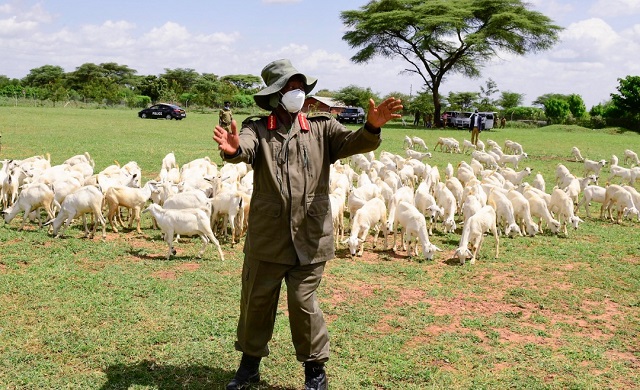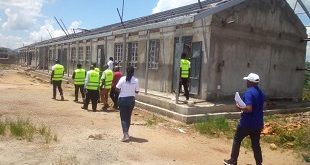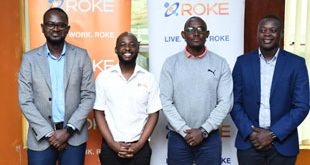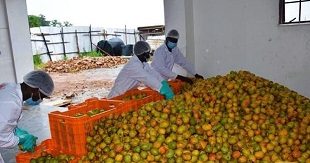
Wakiso, Uganda | THE INDEPENDENT | The implementers of the Exotic Goat Rollout Program, initiated by President Museveni to boost goat farming and meat exports, are grappling with financial challenges that threaten the project’s success. Launched in 2019 as a five-year initiative, the program aims to bolster goat meat production in Uganda.
It focuses on the rollout of exotic goat production in several districts, including Sembabule, Gomba, Mubende, Kyankwanzi, Wakiso, Nakasongola, and Nakaseke. Wakiso, due to its peri-urban nature, exclusively concentrates on dairy goats. Paul Ssembeguya, the program’s lead implementer, revealed that limited funding has hindered their ability to support an adequate number of farmers.
Out of 500 applications, they could only provide goats to 31 farmers per district, leaving a gap between the intended 1,120 beneficiaries and 471 households reached so far. Ssembeguya highlighted the funding struggle, stating, “We’ve incurred losses as some of the farmers’ animals couldn’t receive proper care due to a lack of specialized transport and an insufficient number of personnel for extension services.”
Despite the President allocating up to Shillings 38 billion for the program, it receives an average of only Shillings 350 million annually because it lacks a payment code. As a result, it relies on the Ministry of Agriculture’s budget, significantly impeding its progress and raising questions about its viability among many Ugandans.
Stephen Kajura, the national coordinator of the meat export services project in the Ministry of Agriculture, explained that the project’s funding challenges arise from competing priorities within the ministry. Resources primarily focus on controlling animal diseases, leaving limited funds for initiatives like this one, which has yet to secure its funding code from the Ministry of Finance.
Kajura added that they are actively working to shift the project’s funding from recurrent to development within the government of Uganda’s budget, ensuring a safeguarded budget. Additionally, as a solution to the funding problem, they are exploring a concessional loan of up to 32 million Euros to support both the Goat Rollout Program and the beef export project. This process is advancing, with a projected completion date in May 2024.
According to Kajura, the program has already received a market request from the Arab world to supply 30 tons monthly, which could help repay the loan quickly.
“We remain hopeful for the coming year. It’s important to remember that the farmers aren’t at fault here; they simply need support services. With this funding, previous studies suggest that within three to four years, these enterprises can generate the required funds, as we’re building on the hard work of our farmers,” Kajura emphasized the resilience and dedication of Uganda’s goat farmers.
The introduction of these 47 male goats represents a significant enhancement to the project. It aims to prevent inbreeding that could potentially harm existing livestock. Each of these males has been acquired at a cost of 7.5 million shillings, underscoring the commitment to ensuring the project’s long-term success and genetic diversity.
****
URN
 The Independent Uganda: You get the Truth we Pay the Price
The Independent Uganda: You get the Truth we Pay the Price


